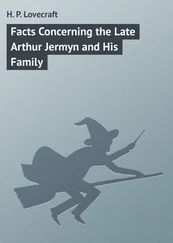Margaret Oliphant - A Country Gentleman and his Family
Здесь есть возможность читать онлайн «Margaret Oliphant - A Country Gentleman and his Family» — ознакомительный отрывок электронной книги совершенно бесплатно, а после прочтения отрывка купить полную версию. В некоторых случаях можно слушать аудио, скачать через торрент в формате fb2 и присутствует краткое содержание. Жанр: foreign_prose, на английском языке. Описание произведения, (предисловие) а так же отзывы посетителей доступны на портале библиотеки ЛибКат.
- Название:A Country Gentleman and his Family
- Автор:
- Жанр:
- Год:неизвестен
- ISBN:нет данных
- Рейтинг книги:5 / 5. Голосов: 1
-
Избранное:Добавить в избранное
- Отзывы:
-
Ваша оценка:
- 100
- 1
- 2
- 3
- 4
- 5
A Country Gentleman and his Family: краткое содержание, описание и аннотация
Предлагаем к чтению аннотацию, описание, краткое содержание или предисловие (зависит от того, что написал сам автор книги «A Country Gentleman and his Family»). Если вы не нашли необходимую информацию о книге — напишите в комментариях, мы постараемся отыскать её.
A Country Gentleman and his Family — читать онлайн ознакомительный отрывок
Ниже представлен текст книги, разбитый по страницам. Система сохранения места последней прочитанной страницы, позволяет с удобством читать онлайн бесплатно книгу «A Country Gentleman and his Family», без необходимости каждый раз заново искать на чём Вы остановились. Поставьте закладку, и сможете в любой момент перейти на страницу, на которой закончили чтение.
Интервал:
Закладка:
"I wonder how long mamma means to stay. One would think she was enjoying it," Minnie said, with a little emphasis on the word. As she used it, it seemed the most reprehensible verb in the world.
"She likes to be with Theo," said Chatty; "and she is always such a one for the air."
"Likes!" said her sister. "Is this a time to think of what one likes, with poor dear papa in his coffin?"
"She never left him as long as he wanted her," said the apologetic sister.
"No, indeed, I should hope not; that would have been criminal. Poor dear mamma would never do anything really bad; but she does not mind if she does a thing that is unusual. It is very unusual to go out before the funeral; it is a thing that is never done, especially by the ladies of the house."
"Shall we be able to go out on Friday, Minnie?" Friday was the funeral day.
"It would be very bad taste, I think. Of course, if it does not prove too much for us, we ought to go to church to meet the procession. Often it is thought to be too much for the ladies of a family."
"I am sure it would not be too much for me. Oh, I shall go as far as we can go with him – to the grave, Minnie."
"You had better wait till you see whether it will not be too much for you," said the elder sister, while Chatty dried her eyes. Minnie's eyes had no need of drying. She had cried at the right time, but it was little more than levity to be always crying. It was nearly as bad as enjoying anything. She did not like extravagance of any kind.
And then they turned to their reading again, and felt that, whatever mamma might think herself at liberty to do, they, at least, were paying that respect to their father's memory which young women in a well-regulated household should always be the first to pay.
CHAPTER III
Meanwhile the mother and son took their walk. It was a very silent walk, without much outward trace of that enjoyment which Minnie had felt so cruelly out of place: but no doubt to both there was a certain pleasure in it. Mr. Warrender had now been lying in that silent state which the most insignificant person holds immediately after death, for three days, and there was still another to come before he could be laid away in the dark and noisome bed in the family vault, where all the Warrenders made their last assertion of superiority to common clay. This long and awful pause in the affairs of life was intolerable to the two people now walking softly through the paths of the little wood, where the moonbeams shone through the trees; to the son, because he was of an impatient nature, and could not endure the artificial gloom which was thus forced upon him. He had felt keenly all those natural sensations which the loss of a father calls forth: the breaking of an old tie, the oldest in the world; the breach of all the habits of his life; the absence of the familiar greeting, which had always been kind enough, if never enthusiastic; the general overturn and loss of the usual equilibrium in his little world. It was no blame to Theo if his feelings went little further than this. His father had been no active influence in his life. His love had been passive, expressing itself in few words, without sympathy in any of the young man's pursuits, or knowledge of them, or desire to know, – a dull affection because the boy belonged to him, and satisfaction in that he had never got into any scrapes or given any trouble. And the return which the son made was in the same kind. Theo had felt the natural pang of disruption very warmly at the moment; he had felt a great awe and wonder at sight of the mystery of that pale and solemn thing which had lately been so unmysterious and unsolemn. But even these pangs of natural sensation had fallen into a little ache and weariness of custom, and his fastidious soul grew tired of the bonds that kept him, or would have kept him, precisely at the same point of feeling for so many hours and days. This is not possible for any one, above all for a being of his temper, and he was restless beyond measure, and eager to get over this enforced pause, and emerge into the common life and daylight beyond. The drawn blinds somehow created a stifling atmosphere in his very soul.
Mrs. Warrender felt it was indecorous to begin to speak of plans and what was to be done afterwards, so long as her dead husband was still master of the oppressed and melancholy house; but her mind, as may be supposed, was occupied by them in the intervals of other thoughts. She was not of the Warrender breed, but a woman of lively feelings; and as soon as the partner of her life was out of her reach she had begun to torment herself with fears that she had not been so good to him as she ought. There was no truth, at least no fact, in this, for there could have been no better wife or more careful nurse. But yet, as every individual knows more of his or her self than all the rest of the world knows, Mrs. Warrender was aware that there were many things lacking in her conjugal devotion. She had not been the wife she knew how to be; in her heart she had never given herself credit for fulfilling her duty. Oh yes, she had fulfilled all her duties. She had been everything to him that he wanted, that he expected, that he was capable of understanding. But she knew very well that when all is said, that is not everything that can be said; and now that he was dead, and could no longer look in her face with lack-lustre eyes, wondering what the deuce the woman meant, she threw herself back upon her own standard, and knew that she had not come up to it. Even now she could not come up to it. Her heart ought to be desolate; life ought to hold nothing for her but perhaps resignation, perhaps despair. She ought to be beyond all feeling for what was to come. Yet she was not so. On the contrary, new ideas, new plans, had welled up into her mind, – how many, how few hours after she had laid down the charge, in which outwardly she had been so faithful, but inwardly so full of shortcomings? These plans filled her mind now as she went by her son's side through the mossy paths where, even in the height of summer, it was always a little cold. She could not speak of them, feeling a horror of herself, an ashamed sense that to betray the revulsion of her thoughts to her boy would be to put her down from her position in his respect for ever. Between these mutual reluctances to betray what was really in them the two went along very silently, as if they were counting their steps, their heads a little bowed down, the sound of their feet making far more commotion than was necessary in the stillness of the place. To be out-of-doors was something for both of them. They could breathe more freely, and if they could not talk could at least think, without the sense that they were impairing the natural homage of all things to the recently dead.
"Take care, Theo," she said, after a long interval of silence. "It is very damp here."
"Yes, there is a good deal of timber that ought to go." He caught his breath when he had said this, and she gave a slight shiver. They both would have spoken quite freely had the father been alive. "The house is damp, too," said he, taking courage.
"In winter, perhaps, a little, when there is much rain."
And then there was a long pause. When they came within sight of the pond, which glistened under the moonlight, reflecting all the trees in irregular masses, and showing here and there a big white water-lily bud couched upon a dark bank of leaves, he spoke again: "I don't think it can be very healthy, either, to have the pond so near the house."
"You have always had your health, all of you," she said.
"That is true; but not very much of it. We are a subdued sort of family, mother."
"That is because the Warrenders – " She stopped here, feeling the inappropriateness of what she was about to say. It very often happens that a wife has but little opinion of the race to which her husband belongs. She attributes the defects of her own children to that side instinctively. "It is character," she said, "not health."
Читать дальшеИнтервал:
Закладка:
Похожие книги на «A Country Gentleman and his Family»
Представляем Вашему вниманию похожие книги на «A Country Gentleman and his Family» списком для выбора. Мы отобрали схожую по названию и смыслу литературу в надежде предоставить читателям больше вариантов отыскать новые, интересные, ещё непрочитанные произведения.
Обсуждение, отзывы о книге «A Country Gentleman and his Family» и просто собственные мнения читателей. Оставьте ваши комментарии, напишите, что Вы думаете о произведении, его смысле или главных героях. Укажите что конкретно понравилось, а что нет, и почему Вы так считаете.












